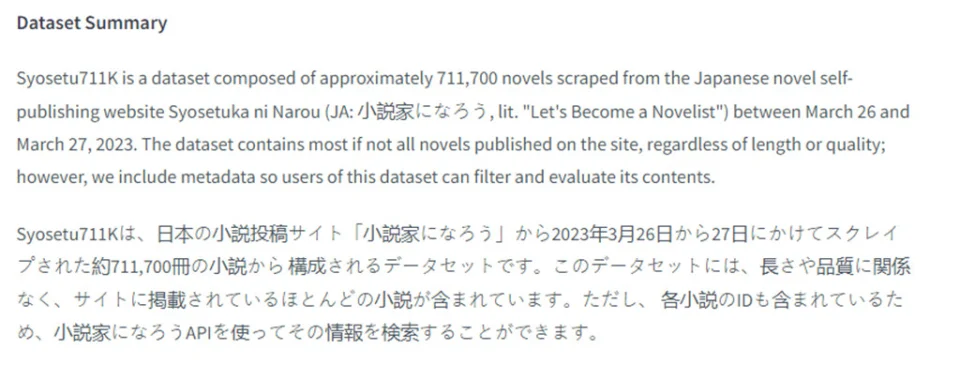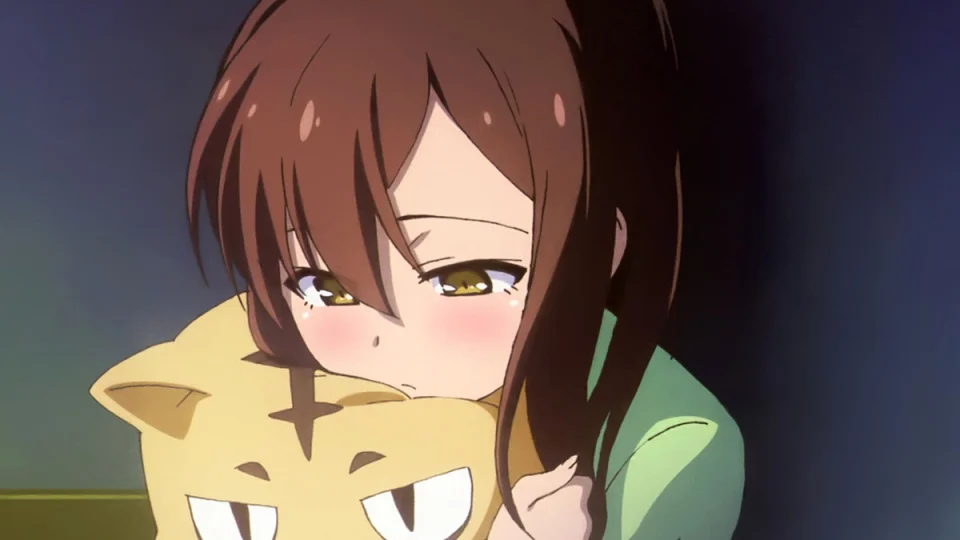An AI capable of writing light novels is born

Via Twitter, the developers of the RyokoAI project reported that they have copied 711,700 works from Japan's largest independent novel site, Shosetsuka ni Narou (also known as Syosetu or Narou), making the dataset publicly available for AI text generation models. The "Syosetu711k" dataset includes most of the novels published on the site, noting that Syosetu's popularity and the trend for anime to be adapted to works on the site provide "a large corpus of high-quality creative content in the Japanese language."


Online commenters have questioned the legality of this. While Syosetu prohibits any action that "infringes or threatens to infringe the property, privacy, or likeness rights of our group or others," this only pertains to accounts registered on the site. Users do not need to be registered to read works on the site or use the site's API to copy data. Others add that simply copying data does not amount to infringement. With all the data copied between March 26 and March 27, 2023, some have argued that this could be seen as a business obstruction, given the potential load on servers by making hundreds of thousands of requests in a short period.
RyokoAI's goal of generating light novels quickly comes as Syosetu's writers are already facing criticism from light novel fans for perceived low quality and many of their titles lean heavily on narrative tropes and stereotypes. In addition, the frequency with which the anime industry adapts its titles has also been criticized as 'opportunism' or a lazy way of maintaining production levels so as not to lose ground to other countries in the animation market.
A rise in AI-generated novels would surely intensify this discussion, with some split between free-market acceptance and outright banning. Others say they should be labeled, allowing fans to focus their reading and consumption choices on stories written by humans. Outside of fans, numerous concerns about the use of AI in Japanese media have been raised by industry figures. OpenAI's ChatGPT developers cited Japan's lax AI regulations as a reason for opening a new office in Tokyo, prompting "Jujutsu Kaisen 0" lead animation director Nishii Terumi to call the government "traitors."

He added, "They steal everything they want because we're a content powerhouse" and "They never protect the industry or the creators." Animators' association NAFCA issued a public statement on AI's threat to copyright, adding that creators should be able to decide and that it doesn't mean that "the 'perpetrator' wins and the 'victim' cries themselves to sleep," referencing the threat that creators' hard work could potentially be stolen without compensation.
Source: @narou_fun_db en Twitter

